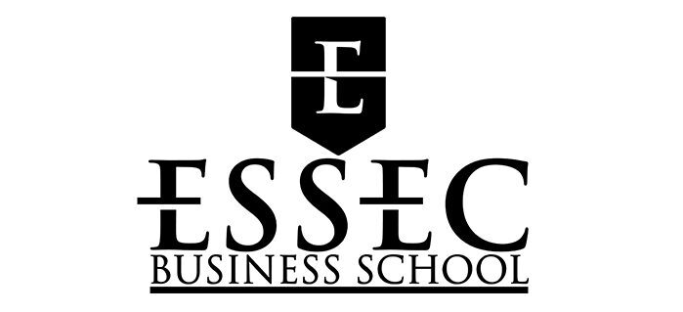As climate change accelerates, so does the demand for greater knowledge around sustainable and ethical business practices.
This is where corporate social responsibility, or CSR, comes in. It’s a term you’ve likely heard, but while it used to be a fringe activity for many companies, it’s now central to modern business strategy.
We spoke to an expert from ESSEC Business School to ask: what is corporate social responsibility and why is it important?
What is corporate social responsibility?
The definition of corporate social responsibility can vary but there’s a common theme underlying the term.
David Sluss (pictured) is a management professor at ESSEC and designs and teaches classes on CSR and leadership for MBA and business school students. He’s also the academic director of the ESSEC Global MBA program.
He says that, in short, corporate social responsibility is a business’ concern for society—whether this be from an ecological, socio-economic, or employment standpoint.
“The term CSR used to be seen as separate to traditional business topics but now we’re aware that it’s endemic to everything and every organization,” he says.
In other words, how a business makes money has a knock-on effect on society—and the world.
The importance of corporate social responsibility
Since CSR is a way of understanding how a business impacts upon society, its importance cannot be understated.
In terms of why everyone should be interested in CSR, David has some wise words.
“It’s almost like asking: why should anyone care about society?” he says, “our world is one big collective endeavor—businesses do not live in a vacuum.”
There are many issues that businesses have the capabilities and the competencies to help solve, collectively, and even individually, he adds.
For instance, corporate social responsibility initiatives are necessary to improve the circular economy, which is an economic system that minimizes waste through reducing and reusing materials and products.
Examples of corporate social responsibility led companies
Corporate social responsibility can seem like an abstract concept, which is why it’s easier to look at examples of companies that perform well at corporate social responsibility.
One example of CSR at a company’s core is at the outdoor clothing brand, Patagonia.
The company pledges its commitment to CSR in several ways. 34% of Patagonia’s apparel assembly factories pay workers a living wage on average, it offers a lifelong guarantee to try to repair products that consumers buy, and creates many of its products using environmentally friendly fabrics.
“Patagonia products are for people who love the outdoors and want to enjoy nature, so their commitment to sustainability is circular as the company wants to then protect the nature their consumers love,” David says.
He adds that business schools have a responsibility to teach students that by aligning your company's output to benefit society, you’ll have a strategic impact that can benefit the business in turn.
“It’s about perpetuating your market,” he says.
This is why business school programs such as the Global MBA at ESSEC embed sustainability teachings into their entire curriculum, with courses such as Sustainability for the Common Good, Sustainable Marketing, and Sustainable Finance.
Learning about these issues at ESSEC’s campus in Paris is also a major benefit to students. In the French capital, they’re at the heart of governmental and policy decisions related to climate change, and the country ranks fourth in the Global Sustainability Index.
The city is where the international climate change treaty, the Paris Agreement was brokered, and in 2019, France pledged to become carbon-neutral by 2050.
The business benefits of corporate social responsibility
Most organizations and companies have a brand identity—whether good or bad.
Patagonia is a great example of building a brand identity that lives its values, which helps to build a loyal customer base, too.
With an increasingly savvy younger generation, particularly the ecologically-minded Generation-Z, companies need to work hard to align their brand image with sustainable values—or risk failure.
“CSR needs to be part of a company’s brand identity and it must create products with CSR features infused—otherwise, they run the risk of losing out with consumers and the market.”
A company’s reputation and bottom line are at stake, as well as society at large.
What corporate social responsibility jobs are out there?
As CSR is about how business impacts society, there are numerous roles with a focus on it.
In the consulting sector—one of the most popular sought-after areas for business school grads—there are opportunities for sustainability consultants. These specialist consultants work with clients to enhance their CSR practices.
There are also many sustainability roles in marketing, such as sustainable marketing manager.
In finance there’s a growing demand for talent well-versed in Environmental, Social, and Governance (ESG) measures.
At ESSEC Business School, there are also many sustainability-driven startups that are supported by the school’s entrepreneurship incubator.
One such ESSEC-born startup is a sustainable makeup and beauty brand with circular values at its heart.
“Before these students were even graduating, they had interest from investors,” David says.
How can business schools create leaders in CSR?
Business schools play a vital role in shaping the CSR-driven leaders of the future.
“In the modern tech economy, almost every country in the world is run as a market economy. This means businesses run these economies,” David says.
Business school grads need to be ready to navigate modern and emerging organizations through the advent of climate change, he says.
Aside from several sustainability-focused courses, and sustainability teachings throughout the ESSEC Global MBA curriculum, there are also opportunities for students to get involved in hands-on projects.
Previous projects have seen MBA students work with a large UK-based international charity, focusing on how to encourage and support activists.
Other projects might involve working with a company to solve an issue such as reducing the impact of local tourism.
“These projects help grads enter jobs in which they use their business skills to solve societal issues,” David says.
Since organizations around the world are making big changes and pledges to meet sustainability goals, the demand for talented CSR leaders is only going to increase.
To be ahead of this change, business school grads will need to combine their understanding of climate change with their managerial and leadership acumen. Joining a top MBA program that teaches how these areas intersect can help you put corporate social responsibility at the heart of your career.
BB Insights explores the latest research and trends from the business school classroom, drawing on the expertise of world-leading professors to inspire and inform current and future leaders.
Student Reviews
ESSEC Business School








